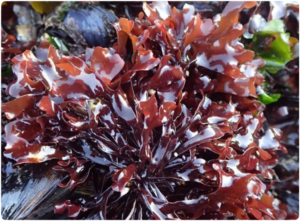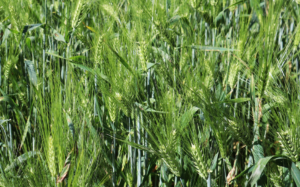The concept of the Mediterranean diet has long been associated with numerous health benefits. These benefits originated from the traditional eating patterns of countries in and around the Mediterranean Sea. However, with increasing concerns about environmental sustainability, there’s been a growing interest in exploring how dietary choices can be both healthy as well as environmentally friendly. Today we will explore how the green Mediterranean diet and sustainability go hand in hand and is a promising approach that hits both of these objectives.

Understanding the Mediterranean Diet
What is the Mediterranean diet? The Mediterranean diet is characterized by high consumption of fruits, vegetables, whole grains, legumes, and nuts. Olive oil serves as a primary source of fat. Animal products such as Fish and poultry are consumed in moderate amounts. This dietary pattern has been linked to reduced risk of chronic diseases such as heart disease, diabetes, and certain cancers[1]. Additionally, it promotes longevity and overall well-being.
Evolution into the Green Mediterranean Diet

The green Mediterranean diet builds upon the principles of the traditional Mediterranean diet. However, it places a stronger emphasis on sustainability too. This adaptation recognizes the interconnectedness between food choices and environmental impact. It aims to minimize the ecological footprint of dietary habits. The green Mediterranean diet emphasizes locally sourced, seasonal, and organic produce. It reduces reliance on processed foods and animal products with high environmental costs.
Environmental Benefits
Adopting a green Mediterranean diet can have several positive effects on the environment. Prioritizing plant-based foods and reducing consumption of animal products might help mitigate greenhouse gas emissions associated with livestock farming. In addition to that, supporting local and organic agriculture promotes biodiversity. It reduces water usage and minimizes the need for synthetic pesticides and fertilizers. Thus, it preserves ecosystems and soil health.
Sustainable Food Practices
In addition to food choices, sustainable practices are integral to the green Mediterranean diet. These practices include reducing food waste, supporting small-scale farmers, and embracing circular economy principles. This involves composting organic waste, choosing minimally packaged goods, and participating in community-supported agriculture initiatives. These actions not only reduce environmental impact but also contribute to local economies and foster resilience within food systems.
Implementing the Green Mediterranean Diet
Sample Menu

Breakfast
- Avocado toast on whole grain bread topped with cherry tomatoes and a drizzle of olive oil.
- Fresh fruit salad with a sprinkle of almonds.
- Herbal tea or freshly squeezed orange juice.
Lunch

- Mediterranean chickpea salad with mixed greens, cucumbers, bell peppers, olives, and feta cheese.
- Whole grain pita bread with hummus.
- Greek yogurt with honey and walnuts for dessert.
Dinner

- Grilled eggplant and zucchini served with quinoa pilaf.
- Baked salmon with lemon and herbs.
- Steamed broccoli with garlic and olive oil.
Recipes
Mediterranean Chickpea Salad
- Ingredients: Chickpeas, mixed greens, cucumbers, bell peppers, olives, feta cheese, olive oil, lemon juice, oregano, salt, and pepper.
- Instructions: Combine all ingredients in a large bowl. Drizzle with olive oil and lemon juice, then season with oregano, salt, and pepper. Toss to combine and serve chilled.
Grilled Eggplant and Zucchini
- Ingredients: Eggplant, zucchini, olive oil, garlic, salt, and pepper.
- Instructions: Slice eggplant and zucchini into rounds. Brush with olive oil and minced garlic. Season with salt and pepper. Grill until tender and lightly charred.
Conclusion
The principles of the green Mediterranean diet encourage mindful consumption and appreciation of seasonal, locally sourced ingredients. This fosters a deeper connection to food and the environment. Ultimately, embracing the green Mediterranean diet is not only a step towards a healthier lifestyle but also a conscious effort to promote sustainability and preserve the planet for future generations.





